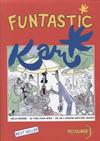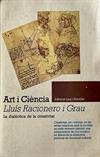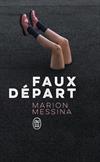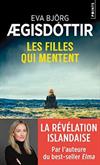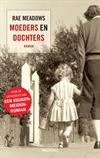
Arlington Park
1 journaler for this copy...
The monstrous, unpeopled palaces of cloud", 9 Jan 2007
By M. J Leonard "MikeonAlpha" (Silver Lake, Los Angeles, CA United States) - See all my reviews
(TOP 50 REVIEWER) (REAL NAME)
This review is from: Arlington Park (Hardcover)
In her highly metaphorical novel, Arlington Park, author Rachel Cusk continues to skewer the lives, loves and hidden passions of the British middle-class. Using the metaphor of a rain-soaked and ominously cloudy day, Cusk writes a chilly and compellingly realistic story of five thirty-something women all mired in marital dissatisfaction and family dysfunction.
In the opening act we meet 36-year-old Juliet who is beginning to see the sheen coming off her life. Juliet and Benedict, her husband have come to Arlington Park because of Benedict's job teaching underpriviledged kids in a local failing school. Juliet has an average lifestyle, but is deeply unhappy with her confined life in this small town.
On a whim Juliet decides to get her all her hair cut off, hoping that by doing this she can transcend it all, including her dissatisfaction with her little house with its stained carpets, this town with its shopping and its flawed people. If only Juliet she could find a place less cramped, less confining, and "open out all the petals packed inside her."
Meanwhile, not far away, Amanda feels strangely naked as she begins to suspect some inadequancy in herself and her husband James. Lately, a feeling of precariousness had been steadily beseiging her and she's torn between the life she's actually living in Arlington Park and her feelings about it. Like Juliet, Amanda too is plagued by a type of "sterility of life," as though her heart has no love in it; she's living a life that's just too ordinary.
Solly, on the other hand, has a life that seems full and loaded with "too much fat." Her and her husband are constantly needing money, consequently up until now Solly's life has been defined by shallow opinions of society's expectations and this constant urge for material gain. Now pregnant for the fourth time, Solly suddenly feels aerated and overblown, whilst her husband seems to be corresponsingly hardening into a lean vertical type masculinity. Perhaps the most outwardly frustrated of all the girls, Solly is sure that there is layer of her that is irretrievably lost.
It comes as no surprise that Maisie has similar problems: Maisie shouts at her daughter, telling her that she's ruining her life, whilst throwing her lunchbox at the kitchen wall. Maisie just can't seem to gather together those transitory moments of peace and serenity that she so wishes for. Feeling like a ''boat in a harbor where the tide has gone out, lying helplessly on her side in the mud,'' Maisie is frustrated with parenthood and would probably be more satisfied with a life of self-gratification.
Full of the "deposits of waisted days" and wishing that this strange life hadn't reeled them in, these women go about their lives encumbered with discontent. Whilst some of them visit a large encapsulated shopping mall called Merrywood, finding satisfaction in lunch and shopping, others take the kids to school, go to the hairdressers, and shop for dinner.
Besides their obvious insecurities they seem all determined to be good wives and good mothers, "we all are feeding our families these healthy meals and taking our children to piano lessons and making our houses all perfect."
Focusing more on character than plot, Cusk writes of a single day in the lives of these women, culminating in a dinner party held by the boistrous Chistine, perhaps the most lively and easily recognizable of the girls. Chistine too has been suffering retrospective fear of inauthenticity which seemed to reveal to her the vulnerabitity of her grasp on the real and the authentic life.
Cusk's grim vision of the seemingly rootless existence of suburban middle-class life, may come across as unnecessarily bleak, but what really elevates the story is the author's startling capacity for weaving the interior lives of her characters into the clamoring external world of the leafy and rain-soaked town of Arlington Park.
The monstrous, "unpeopled palaces of cloud" gather, whilst the rain falls on empty avenues and its well-pruned hedges, equally penestrating these womens' dreams as "a sound like the sound of uproarious applause." Arlington Park is without a doubt a scathing indictment of British suburban life, with its instant wish fulfillment, its unbridled consumerism, and the great battering waves of mood and mortality that seem to have taken over towns such as this.
It is a startling view, though not necessarily a reassuring one, and as the rain continues to fall, grey and unvailing, "the endless alternation of storm and calm," it almost becomes like sorrow for these characters and seems to preclude every other possiblity, every other shade of feeling or even being for them. Mike Leonard January 07.
By M. J Leonard "MikeonAlpha" (Silver Lake, Los Angeles, CA United States) - See all my reviews
(TOP 50 REVIEWER) (REAL NAME)
This review is from: Arlington Park (Hardcover)
In her highly metaphorical novel, Arlington Park, author Rachel Cusk continues to skewer the lives, loves and hidden passions of the British middle-class. Using the metaphor of a rain-soaked and ominously cloudy day, Cusk writes a chilly and compellingly realistic story of five thirty-something women all mired in marital dissatisfaction and family dysfunction.
In the opening act we meet 36-year-old Juliet who is beginning to see the sheen coming off her life. Juliet and Benedict, her husband have come to Arlington Park because of Benedict's job teaching underpriviledged kids in a local failing school. Juliet has an average lifestyle, but is deeply unhappy with her confined life in this small town.
On a whim Juliet decides to get her all her hair cut off, hoping that by doing this she can transcend it all, including her dissatisfaction with her little house with its stained carpets, this town with its shopping and its flawed people. If only Juliet she could find a place less cramped, less confining, and "open out all the petals packed inside her."
Meanwhile, not far away, Amanda feels strangely naked as she begins to suspect some inadequancy in herself and her husband James. Lately, a feeling of precariousness had been steadily beseiging her and she's torn between the life she's actually living in Arlington Park and her feelings about it. Like Juliet, Amanda too is plagued by a type of "sterility of life," as though her heart has no love in it; she's living a life that's just too ordinary.
Solly, on the other hand, has a life that seems full and loaded with "too much fat." Her and her husband are constantly needing money, consequently up until now Solly's life has been defined by shallow opinions of society's expectations and this constant urge for material gain. Now pregnant for the fourth time, Solly suddenly feels aerated and overblown, whilst her husband seems to be corresponsingly hardening into a lean vertical type masculinity. Perhaps the most outwardly frustrated of all the girls, Solly is sure that there is layer of her that is irretrievably lost.
It comes as no surprise that Maisie has similar problems: Maisie shouts at her daughter, telling her that she's ruining her life, whilst throwing her lunchbox at the kitchen wall. Maisie just can't seem to gather together those transitory moments of peace and serenity that she so wishes for. Feeling like a ''boat in a harbor where the tide has gone out, lying helplessly on her side in the mud,'' Maisie is frustrated with parenthood and would probably be more satisfied with a life of self-gratification.
Full of the "deposits of waisted days" and wishing that this strange life hadn't reeled them in, these women go about their lives encumbered with discontent. Whilst some of them visit a large encapsulated shopping mall called Merrywood, finding satisfaction in lunch and shopping, others take the kids to school, go to the hairdressers, and shop for dinner.
Besides their obvious insecurities they seem all determined to be good wives and good mothers, "we all are feeding our families these healthy meals and taking our children to piano lessons and making our houses all perfect."
Focusing more on character than plot, Cusk writes of a single day in the lives of these women, culminating in a dinner party held by the boistrous Chistine, perhaps the most lively and easily recognizable of the girls. Chistine too has been suffering retrospective fear of inauthenticity which seemed to reveal to her the vulnerabitity of her grasp on the real and the authentic life.
Cusk's grim vision of the seemingly rootless existence of suburban middle-class life, may come across as unnecessarily bleak, but what really elevates the story is the author's startling capacity for weaving the interior lives of her characters into the clamoring external world of the leafy and rain-soaked town of Arlington Park.
The monstrous, "unpeopled palaces of cloud" gather, whilst the rain falls on empty avenues and its well-pruned hedges, equally penestrating these womens' dreams as "a sound like the sound of uproarious applause." Arlington Park is without a doubt a scathing indictment of British suburban life, with its instant wish fulfillment, its unbridled consumerism, and the great battering waves of mood and mortality that seem to have taken over towns such as this.
It is a startling view, though not necessarily a reassuring one, and as the rain continues to fall, grey and unvailing, "the endless alternation of storm and calm," it almost becomes like sorrow for these characters and seems to preclude every other possiblity, every other shade of feeling or even being for them. Mike Leonard January 07.
